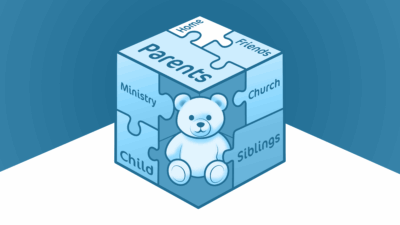
Guard the Gates

Everett Hornbostel serves as the pastor of Cornerstone Community Church, SBC in Mobridge, SD. He also serves part time with the Dakota Baptist Convention as a Church Relations Missionary. He has training and education in ministry, law enforcement and security, including a Master of Theological Studies in Church Planting from MBTS and a Master of Corporate Security Leadership from Missouri Baptist University. Everett and his wife Rebecca teach Taekwondo and self-defense classes in and around Mobridge as an extension of ministry work in the community. Everett is currently working on a project to adapt his Master’s Capstone project “Evaluating Church Security: Ten Podcasts for a Church Security Team” into a book format titled “Church Security Basics”. He provided regular content for a column titled “Built and Watched by the Lord” for the Dakota Baptist Convention Newsletter which primarily focuses on Church Security topics. Everett has also developed an active intruder response for houses of worship using the acronym RISE. In his free time, he enjoys working on and cruising in the Jeep with Rebecca and their husky, Kota.
In John, Jesus gives this description of the Good Shepherd and describes Himself as being the narrow door by which those who enter are saved. He talks about the thief and the robber climbing the fence to try to get into the sheepfold to harm the sheep. Then in verse 3, Jesus refers to the gatekeeper as being the one who opens the gate when the Shepherd speaks. Let’s consider the gate and the gatekeeper as they relate to church security.
There is something important about a gate. It is the physical barrier which establishes the boundary of entry. There are severe consequences for bypassing a gate to enter a secure area. As a youth, I had a neighbor who had his property fenced off and he had a gate for entry. On the gate was a sign posted which said in very plain red letters “No Trespassing, violators will be shot.” Even though we were friendly with one another, we would always call to make sure it was okay to cross that boundary, and if there wasn’t an answer when the call was made…we didn’t cross the boundary. Church safety policies are like the “No Trespassing” sign my neighbor posted on the gate. They are good and important, but only keep honest people honest.
In some areas, a sign isn’t enough. Armed sentries are stationed at the gate to make sure there aren’t unauthorized entries. These sentries are the gatekeepers, like who Jesus talks about. The gatekeeper role is found in many positions within the church. These roles can include children’s and youth ministry leaders, greeters and ushers, deacons, even the pastor. As a gatekeeper, there are responsibilities involved which include maintaining a safe ministry environment.
The first thing I want to address about the gatekeeper is likely to sound negative and frightening, but my intention is to encourage the gatekeepers to remain strong and courageous (as God told Joshua four times in Joshua 1:6-9). For any predator to access its prey, it must first identify and neutralize the gatekeeper. Consider the wolf attacking the sheep. Of course, we can look at it from a Looney Toons angle where the wolf dressed like a sheep to slip past the sheep dog and swipe sheep from under the nose of the dog. However, the dog was vigilant and was able to identify the wolf in sheep’s clothing and a lump often formed on the wolf’s head that raised the sheep hide. In similar fashion, those who wish to do harm in the church will seek to identify the gatekeepers. These predators will often dress like sheep and attempt to groom the gatekeepers into thinking the wolf is trustworthy and safe to be around. When they do this, they are acting like the Looney Toons wolf, trying to slip by the sheep dog. In some of the more violent church attacks, the intruder would eliminate the gatekeeper (sometimes the armed security team member) before executing their attack on the rest of those in attendance.
Is this all concerning? Definitely. Should this cause us to fear? No. What this should cause us to do is discover what to do to train our gatekeepers to understand what signs to look for to be able to stop the predator before the neutralizing steps begin. Working under a “train more, fear less” mentality can push us toward a desire to learn more and seek to understand the best practices to keeping churches a safe place to worship and learn about Jesus.
The Southern Baptist Convention maintains a vendor directory of training and background screening providers here. Please also check with your state/regional convention or local association to see what providers they may recommend to assist you with properly screening and equipping the gatekeepers in your church.
- Resilient Discipleship: Why Readiness Matters for the Church Today Chris AtkinsIn recent months, tragic headlines have reminded us again that churches are not immune to risk. From violence and fire to medical emergencies and storms, disruption often arrives without warning. Yet too often, churches either avoid the conversation out of fear or delegate responsibility to a small team of volunteers. The result is that when crisis comes, congregations are left unprepared, anxious, and distracted from their calling.
- Responding to Child-on-Child Sexual MisconductWhile abuse of a child by an adult is terrible, it’s usually straightforward to evaluate what is happening. But what about sexual misconduct between children? Is it always abuse? No. Is it always illegal? No. And what should we do about it? The impact on children’s lives is not measured by whether the actions are abuse or a crime—so we must take it seriously.[1] As we evaluate how to respond, it may help to use as an example several common situations. We’ll take the perspective of behavior that is discovered by a church or ministry, but parents will also have to evaluate situations they uncover.
- Confidential Church Communications and Mandated ReportersIn every state, the law requires that certain professionals immediately report to authorities suspicions that a child has suffered abuse. If you are a pastor, elder, deacon, or other leader in your church and are informed of a situation in which a child may have suffered abuse, what are your obligations to report what you have learned? If your congregation has given you authority and responsibility over a church and its members, the answer is likely not a simple one and will depend on the state in which you live, your role in the church, and how you learned about the situation.


